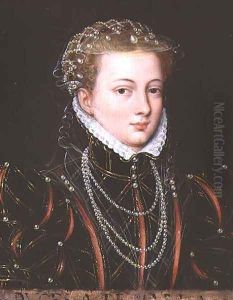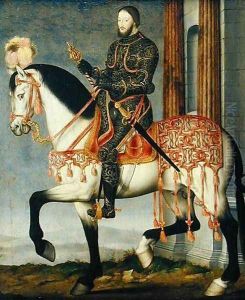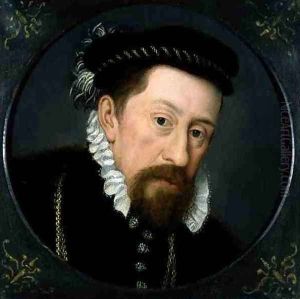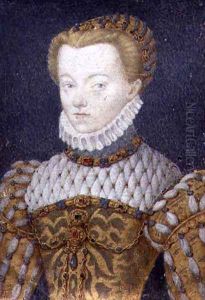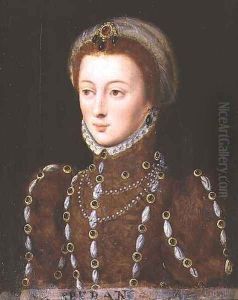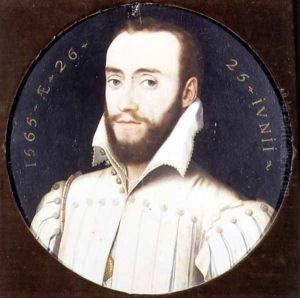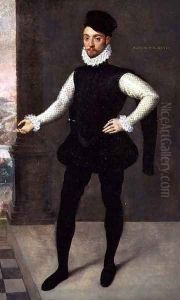(circle of) Clouet, Francois Paintings
François Clouet was a French Renaissance painter, known primarily for his portraits of the French elite. He was born around 1510 in Tours, France. François was the son of Jean Clouet, who was also a celebrated painter. His father, of Flemish origin, had settled in France and became a favorite court artist of King Francis I. Clouet succeeded his father as the court painter, continuing the family tradition of serving the French monarchy.
François Clouet's art was greatly influenced by his father's work, and he inherited many of his father's positions and clientele. After the death of his father circa 1541, Clouet took over the position of official court painter, a role he fulfilled until his own death in 1572. He served under successive French monarchs, from Francis I to Henry II, Francis II, Charles IX, and was appointed to the prestigious position of 'peintre du roi' (painter to the king). His tenure saw him produce not only portraits but also decorative works for the court, including designs for tournaments, pageants, and other festivities.
Clouet was renowned for his detailed and refined portraits, which captured the elegance and sophistication of the French court. His technique showed the influence of the Italian Renaissance, which was characterized by a keen observation of nature and a nuanced approach to depicting the human figure. Clouet's works were highly sought after and he trained many pupils, helping to disseminate his style. His portraits were celebrated for their lifelike quality and psychological depth, often providing a glimpse into the personality of his subjects.
Among his most famous works are the portraits of Elizabeth of Austria, wife of Charles IX, and that of Mary, Queen of Scots, who was brought up at the French court. Another notable work is the portrait of Francis I of France, which showcases the king in regal attire, illustrating Clouet's skill in rendering textures and fabrics.
François Clouet played a key role in the development of French portrait painting and his legacy continued after his death through the works of his followers and the lasting influence he had on French art. His works can be found in major museums around the world, showcasing his contribution to European art history. Clouet died in 1572, leaving behind a body of work that remains celebrated for its elegance and precision.
